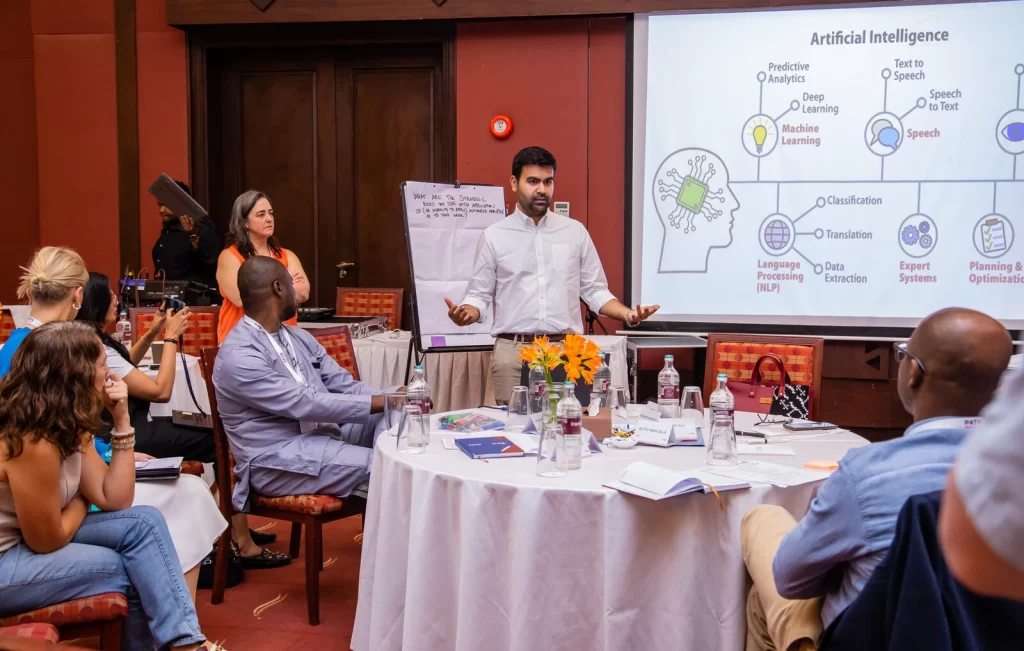From its use to accelerate drug discovery to its application in day-to-day clinical practices, the Artificial Intelligence (AI) offers solutions that could change the course of the global health, but that promise will only be realized if it is accompanied by sustained investment, sound infrastructure and a focus on the equity.
The timing is critical. Global healthcare institutions that in past decades led significant advances are now facing restricted budgets and increasing demands. In this new landscape, it is not enough to innovate: it is necessary to prioritize what truly generates value, especially in healthcare systems that are already operating at the limit of their capacities, highlights Bilal Mateen Director of Artificial Intelligence at PATH in an article in the World Economic Forum.
One of the most representative recent milestones of AI's impact was the 2024 Nobel Prize in Chemistry, awarded in part for breakthroughs in drug discovery driven by artificial intelligence. One of the laureates has managed to raise $600 million to continue this research, a clear indication of the confidence that this technology arouses in the scientific and investment world.
However, Mateen stresses that beyond the laboratory, the integration of AI into the clinical care presents more complex and less glamorous, but no less important, challenges.
"The success of AI depends not just on its capabilities, but on how and where it is implemented, and with what intent. Without deliberate investment and solid foundations, AI risks becoming a costly distraction rather than a meaningful solution," he says.
A telling example comes from Africa. In Kenya, the PATH organization and its partners are conducting one of the continent's most ambitious randomized clinical trials to evaluate the use of AI in primary care.
The study integrates a large language model into electronic health records to assist medical professionals during consultations. This is neither an experimental prototype nor a laboratory test: it is a real intervention in a real environment, designed to measure tangible clinical outcomes.
This type of evidence is key. Despite the growing media and political attention on AI, there is still a lack of rigorous information on its efficacy in everyday clinical settings. And without such information, health systems run the risk of investing in tools that do not solve the most urgent problems or that deepen existing inequalities.
The lesson is clear: the success of AI in healthcare does not depend solely on its technological sophistication, but on how it is used, for what purposes and with what structural support.
Without a strong commitment to generating scientific evidence, strengthening infrastructure and ensuring equity, AI risks becoming an empty promise rather than a life-saving solution.
Source: World Economic Forum


